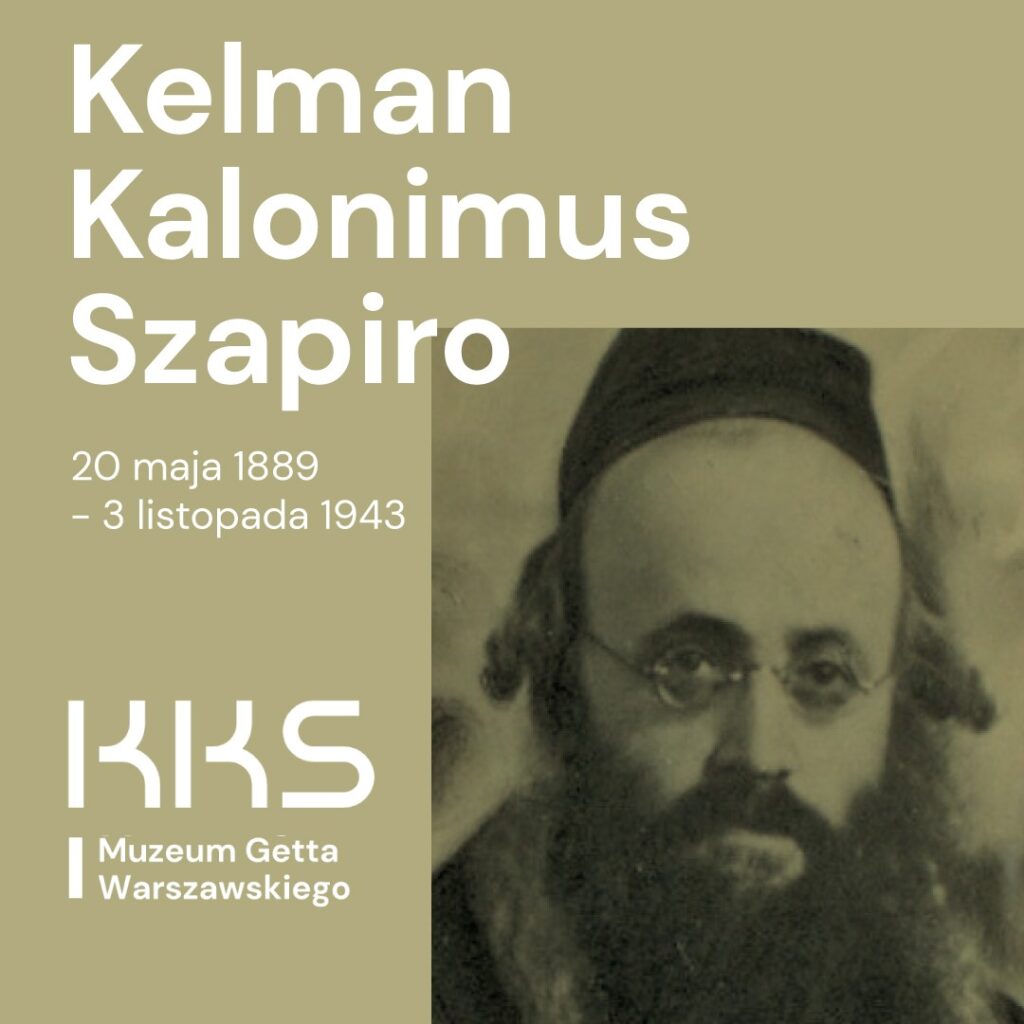
He was born on May 20, 1889, most likely in Grodzisk Mazowiecki. He was the son of Elimelech of Grodzisk, the spiritual leader of the local Hasidim. He was a student of Rabbi Jerachmiel Mosze Hofsztejn from Kozienice. In 1913, he was elected rabbi of Piaseczno. After the outbreak of World War I, he moved to Warsaw, where in 1923 he founded one of the largest Talmudic schools for unmarried students – the Hasidic Daas Mosze.
The outbreak of World War II found him in Piaseczno, but not wanting to leave his students, he returned to Warsaw. He lived in a tenement house at ul. Dzielna 5. After November 16, 1940, the rabbi’s house became part of the ghetto. It quickly became a shelter for refugees as well as a place of study and prayer. The rabbi delivered Torah commentaries each week, trying to strengthen the spirits of his listeners. A kosher kitchen for the hungry was also organized there.
In the spring of 1943, he was deported to the camp in Trawniki. Jewish organizations made efforts to free him from there, but the rabbi did not take advantage of the chance to save him – he and his companions took an oath that they would not be separated regardless of the circumstances. Rabbi Kalonimus Kalman Szapiro was shot along with other prisoners at the beginning of November – most likely on November 3 – during the “Ernterfest” (Harvest Festival) operation.
HAMEC offers the latest in Holocaust education. In Pennsylvania and New Jersey, we provide live and virtual programs. We serve worldwide VIRTUALLY.
HAMEC is a key resource in the fight against antisemitism. Our programs are available to schools worldwide and can be in-person (in Pennsylvania and New Jersey) or virtual, depending on your needs. We also offer teacher training, recorded Survivor testimony, museum tours (virtual and in-person), public programs, adult education opportunities, artifacts for loan, a full academic library, and a publicly accessible catalog of our collection. For questions or to book a program, contact us at 215-464-4701 or info@hamec.org.

